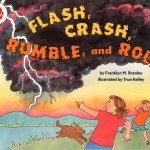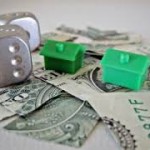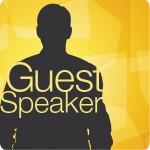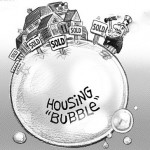
Don’t Blame Lance, Blame Yourself
Posted by ludw1086 on Jan 21, 2013 in Blog | Comments Off on Don’t Blame Lance, Blame YourselfLance Armstrong is again a hot topic, given his confession to doping this week. Many people say it doesn’t matter…he’s done. I was never a big Lance Armstrong fan. I never bought his bracelets and I never got into the hype. And despite all his denials over the years, I always believed he was doping. Cycling is a sport that is so loaded with doping that it’s hard to imagine that anyone could possibly win 7 Tour de France titles in-a-row without having doped. In fact, in the 1940s, before doping was sophisticated, one of the greatest cyclists, an Italian named Fausto Coppi, regularly doped.
So why was Lance allowed to create the mirage that he was a non-doper? Because everyone wanted it to be true. Sponsors benefited from it, the cycling industry benefited from it (I mean had Americans ever cared about the Tour de France before Lance?), and Americans had the magic story they always seem to thirst for. Lying to anyone is a terrible trait in any person, but our world is drowning in hypocracy. Our new society thirsts for deception. Our modern society wants to lose weight by taking a pill, rather than by exercising and eating less. Our new society wants to go to school and get good grades without doing any work for it. Our new society want to have equal pay between workers when the capabilities are very different. Our new society wants million dollar home loans when they make $50,000 per year. Our new society wants government to offer numerous social programs but also balance the budget. Our new society has become accustomed to the persistent lie to please itself temporarily.
Lance Armstrong was entertaining our society just like it wanted to be entertained. Great achievement, great sob story, despite the fact that on the face of it, it just didn’t seem plausible. I personally dislike liars, but Lance’s lies weren’t personal to me and I didn’t believe him anyway. So ironically enough, I like Lance more now, for running the greatest cycling show on earth and feeding our new society’s desire for a quick dose of joy without any effort in getting it.
David Goldschmidt described it eloquently:
Those of us of a certain vintage may still remember Jack Armstrong, “the all-American boy”. I always thought the most exciting thing about Lance was that he was the real-life personification of Jack. But of course Jack was a fiction, and deep down, I think most of us understood that Lance was too. The thing we must remember, but rarely do, is that professional athletes are not sportsmen (or sportswomen as the case may be). That title is reserved for amateurs. Professionals are in business as entertainers, and it is big business. Winning is to professional athletes as box-office is to movie stars — it is how they make their money, which is why they are in business. If everyone in professional cycling is doping and you aren’t, you shouldn’t be in that business and indeed you won’t be for long. So yes, Lance was a cheater and a liar, just like all of his serious competitors. But in some sense, part of the blame lies with us, the audience, for believing in the fiction of professional “sports”.
And let’s not forget some very positive things that were achieved by Lance’s mirage. First, he survived cancer that had attacked his testicles, his brain, and his lungs. That alone is amazing and fortunate. His foundation raised around $470 million to fight against cancer. This may have not been possible without his mirage.
Second, in a sport that is full of dose abuse, whether he won one or seven Tour de Frances, is still remarkable. The only story as impressive is Greg Lemond’s victory in 1989 after having been shot 2 years earlier by a friend’s hunting rifle.
We also have to give USADA some credit for banning Armstrong for a lifetime. It was the only thing that got him to confess. After all, he would love to compete in some form or another in the future. Now it’s up to the USADA if they’ll let him. I would suggest they do the following. Let him compete again, but collect 50% of his ad revenues and use them to help clean up the sport of cycling.






